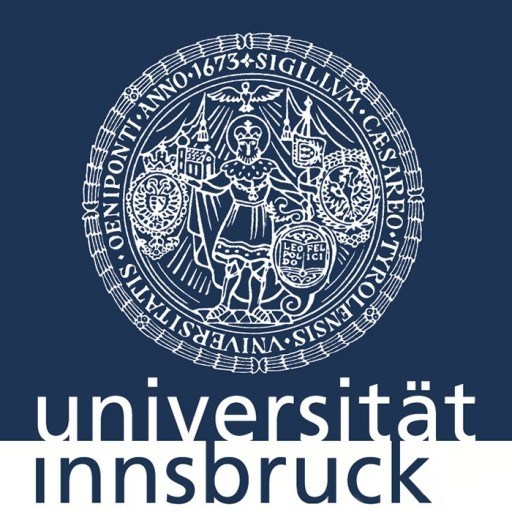Photos of university / #uniinnsbruck
AstroMundus – Astrophysics is a master’s degree program jointly offered by a consortium of leading European universities, designed to provide students with comprehensive training in the field of astrophysics. Delivered through an international and interdisciplinary approach, the program aims to equip graduates with the theoretical knowledge, practical skills, and research competencies necessary to pursue careers in astronomy, astrophysics, space science, and related disciplines. The curriculum covers a broad spectrum of topics, including stellar and galactic astrophysics, cosmology, planetary science, experimental and observational techniques, data analysis, and computational methods. Students have the opportunity to engage in cutting-edge research projects, participate in astronomical observations, and develop expertise in data reduction and interpretation, numerical simulations, and scientific communication. The program emphasizes active learning through lectures, seminars, laboratory work, and teamwork, fostering a collaborative environment that reflects the international nature of astrophysical research. Students also benefit from internships and exchanges at partner institutions across Europe, gaining valuable practical experience and professional networks. Graduates of AstroMundus – Astrophysics are well-prepared for doctoral studies or employment in academia, research centers, space agencies, and industry sectors related to space technology and data analysis. The program promotes academic excellence, innovation, and a deep understanding of the universe, enabling students to contribute meaningfully to scientific discovery and technological advancement in astrophysics. As a truly international program, it welcomes students from diverse backgrounds, fostering a global community committed to exploring the cosmos.
AstroMundus – Astrophysics is a comprehensive Master's program offered collaboratively by leading European universities, including the University of Innsbruck. This interdisciplinary program aims to provide students with a solid foundation in astrophysics, combining rigorous theoretical knowledge with practical research skills. Throughout the programme, students explore a wide range of topics such as celestial mechanics, stellar astrophysics, galactic astronomy, cosmology, and high-energy astrophysics, ensuring a well-rounded understanding of the universe and its underlying physical processes. The curriculum integrates coursework, laboratory work, and computational techniques, enabling students to develop proficiency in data analysis, numerical modeling, and instrumentation.
Students have the opportunity to study at multiple institutions across Europe, benefiting from diverse academic environments and expert faculty. The program emphasizes active research participation, often involving students in ongoing projects, observational campaigns, and data analysis, preparing them for careers in academia, research institutions, or the space industry. AstroMundus also promotes international collaboration and intercultural exchange, enhancing students' global perspectives and professional networks.
Graduates of this program will acquire advanced analytical skills, a deep understanding of astrophysical phenomena, and practical experience with the latest observational instruments and computational tools. They are equipped to pursue doctoral studies or professional roles in astrophysics, space research, astronomy outreach, or related fields. The program’s innovative structure, combining mobility, research, and interdisciplinary coursework, aims to produce highly skilled scientists capable of addressing the complex questions about the universe. Overall, AstroMundus – Astrophysics offers an enriching educational experience designed to meet the demands of a rapidly evolving scientific and technological landscape in astrophysics.
Program requirements for AstroMundus – Astrophysics at the University of Innsbruck typically include a relevant undergraduate degree in physics, astronomy, or a closely related field. Applicants are expected to demonstrate a strong background in physics, mathematics, and astronomy, with supplementary coursework or research experience in astrophysics being advantageous. Proficiency in English is mandatory, supported by evidence such as TOEFL or IELTS test scores that meet the university’s specified minimum standards. Additionally, applicants are often required to submit a motivation letter outlining their interest in astrophysics and their career goals, as well as a CV detailing academic and research experiences. Letters of recommendation from academic references who can attest to the applicant’s suitability for graduate-level studies in astrophysics are usually required. The program also encourages candidates to provide proof of their familiarity with scientific programming and data analysis tools, as these skills are integral to modern astrophysics research. Some programs may prioritize applicants with experience in observational or theoretical astrophysics, or with participation in relevant research projects or internships. While specific GPA requirements may vary, a strong academic record is typically necessary. International students must also meet visa and residency requirements of the host country. The selection process considers academic achievements, research potential, motivation, and language proficiency. Overall, prospective students should present a comprehensive application demonstrating their academic foundation, research interests, motivation, and readiness for an intensive interdisciplinary program in astrophysics.
(Approximately 1500 characters)
Funding for the AstroMundus – Astrophysics program is primarily based on a combination of Erasmus Mundus scholarships provided by the European Union, national grants, and institutional financial support. Erasmus Mundus scholarships are highly competitive and aim to promote higher education cooperation between Europe and participating non-European countries. These scholarships typically cover tuition fees, a monthly living allowance, travel costs, and health insurance for the duration of the two-year program. The amount of the scholarship varies depending on the student's country of residence and the specific scholarship scheme, but generally offers comprehensive financial support to facilitate participation from students worldwide.
In addition to Erasmus Mundus scholarships, students may also seek funding through national scholarship programs and grants offered by their home countries or relevant governmental agencies. Many countries provide financial aid and study grants designed to support their nationals studying abroad, which can supplement Erasmus Mundus funding. Some universities and partner institutions may also offer institutional grants or waivers for tuition fees, especially for outstanding candidates or students from less advantaged backgrounds.
Students are encouraged to explore external funding options such as private foundations and scholarships offered by scientific organizations, which sometimes have specific calls for students pursuing astrophysics and related fields. Furthermore, some students may secure funding through research assistantships or project-based scholarships associated with faculty research initiatives at the participating universities.
The program's multidisciplinary and international nature often allows for additional financial support from research grants and projects linked to the participating universities' astrophysics departments. These research funds can sometimes cover conference attendance, research materials, or small stipends, providing additional opportunities for financial assistance throughout the program.
Applicants are advised to review the specific eligibility criteria and application procedures for each type of funding. The university’s financial aid office and the program’s official website provide comprehensive guidance and updated information about available scholarships, financial requirements, and application deadlines. It is important for prospective students to start early and prepare all necessary documentation to maximize their chances of securing financial support, as competition for scholarships can be intense. Overall, the combination of Erasmus Mundus scholarships, national aid, institutional support, and external funding options enables a diverse range of students to participate in the AstroMundus Astrophysics program and access the high-quality education and research opportunities it offers.
AstroMundus — Astrophysics is a Master’s degree program offered by the University of Innsbruck. This program is designed to provide students with an in-depth understanding of astrophysics, covering a wide range of topics such as stellar physics, cosmology, galactic and extragalactic astrophysics, and observational techniques. The curriculum combines theoretical coursework with practical skills, including data analysis, instrumentation, and computational methods essential for modern astrophysics research. The program is structured as a two-year joint degree, involving students in European universities as part of the European Astrophysics Master’s curriculum.
Students enrolled in AstroMundus have the opportunity to study at multiple European institutions, gaining diverse perspectives and expertise in astrophysics. Through this mobility, students benefit from exposure to different research environments, laboratories, and academic cultures. The program emphasizes international collaboration, research excellence, and preparing graduates for careers in academia, industry, or research institutions. The program is delivered in English, facilitating international participation.
Admission to AstroMundus typically requires a relevant bachelor’s degree in physics or a closely related discipline, along with proficiency in English. Students are expected to demonstrate a strong academic record and motivation for astrophysics research. The program also offers interdisciplinary modules that include computational techniques, data handling, and instrumentation, which are vital skills for modern astrophysicists.
Graduates of the AstroMundus program are equipped with advanced knowledge in astrophysics, research skills, and international experience, making them competitive candidates in the global job market. They often continue their careers in academic research, observatories, space agencies, or high-tech industries. The program is part of the EU-funded Erasmus Mundus initiative, ensuring high-quality education, mobility, and scholarship opportunities for enrolled students. Overall, AstroMundus — Astrophysics at the University of Innsbruck promotes a comprehensive, research-oriented education designed to contribute to the advancement of astrophysics and related fields.









